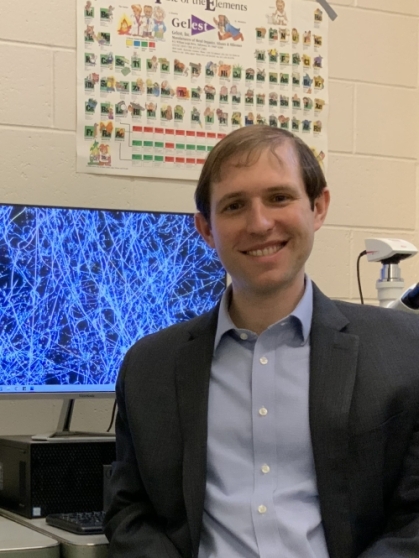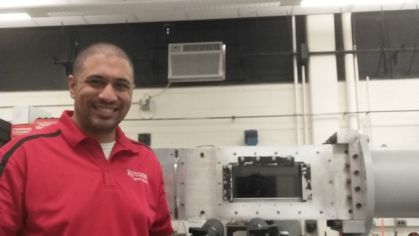MAE Professor Receives New NSF Award
The National Science Foundation (NSF) has awarded Prof. Jonathan Singer a significant grant under its Advanced Manufacturing Program, aimed at advancing the field of nanotechnology through innovative manufacturing processes. Titled "Collaborative Research: Self-Limiting Electrospray Deposition of Nanowire-Particle Composites for Advanced Coatings," this grant facilitates collaboration with Prof. Xin Yong from the University at Buffalo. The research targets the manufacturing of multifunctional nanomaterial coatings that can be applied to complex surface geometries, addressing a substantial gap in current manufacturing capabilities.

One-dimensional nanostructures, such as nanowires and nanorods, are poised to revolutionize various applications, particularly in surface modification, with potential uses in energy storage, tissue engineering, smart textiles, and filtration technologies. Traditional methodologies often fall short due to scalability issues and complexity when applying these nanostructures on intricate surfaces. The project spearheaded by Prof. Singer seeks to harness electrostatically-induced sprays of waterborne gelling polymers, which holds promise for mass-producing conformal coatings. This groundbreaking approach not only enhances productivity but also broadens the functional applications of nanomaterials, contributing meaningfully to U.S. economic growth and technological development.
At the heart of this project lies the exploration of the interplay between self-assembly and morphology development in multiphase droplets formed during electro spray deposition. Through a sophisticated integration of advanced experimental techniques and mesoscale modeling, the research aims to decode the mechanisms involved in nanowire formation from aqueous methylcellulose solutions. By leveraging imaging technologies and simulations, the research team will investigate various factors affecting filler distribution and the functional properties of these composite materials. The findings are expected to extend beyond the initial material system, facilitating the development of new applications and enhancing scalability in nanotechnology manufacturing.
The awarding of this grant highlights the NSF's commitment to fostering innovative research with substantial broader impacts. Prof. Singer's project not only aims to elevate research standards in nanostructure manufacturing but also emphasizes workforce development by engaging students and the scientific community. This initiative stands as a critical step towards securing a leadership position for the U.S. in the global materials manufacturing landscape, ensuring the nation's technological advancements align with ambitious economic progress in the years to come.


